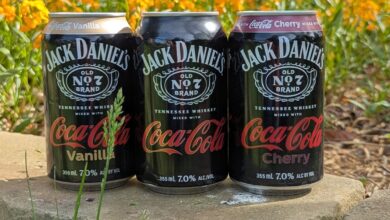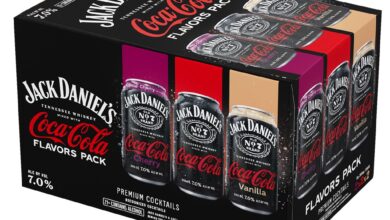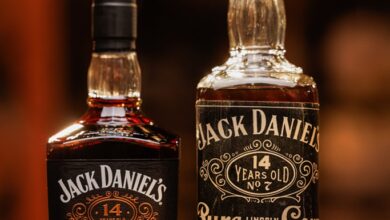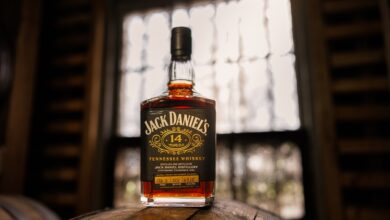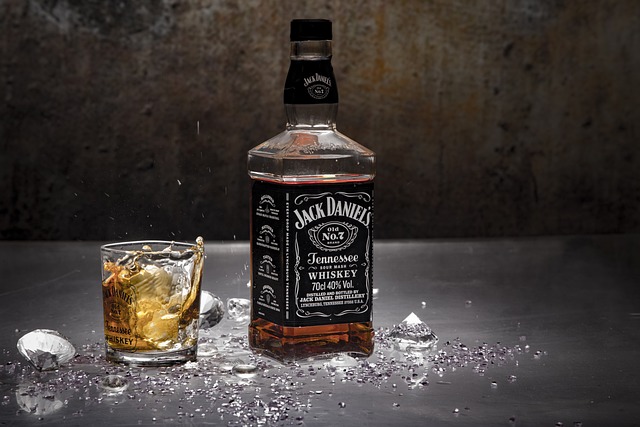Is Tennessee Whiskey Bourbon?
By Richard Thomas
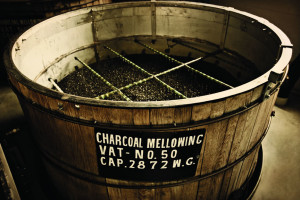
(Credit: Brown-Forman)
Go into a bar—not a whiskey bar, but any bar—and you may hear a friendly argument as to is whether or not Tennessee Whiskey is Bourbon. It’s a decades-old classic, and it used to be on one side were those who were dismissive of Jack Daniel’s, by far the biggest name in Tennessee Whiskey (indeed, American Whiskey overall), insisting that it was just another Bourbon. On the other were those who were more supportive of old JD (or just maybe George Dickel), and insisted that differences applied to Tennessee Whiskey were real and important, so it was a category on its own.
With no binding legal definitions for Tennessee Whiskey, beyond that it had to be made in the Volunteer State, this is where the debate stood for decades. Whatever side of the argument you took, you could make a persuasive-but-inconclusive case, because there the facts were insufficient to make one. Then in 2013, Tennessee passed a new law that gave the category a technical definition, the balance shifted, and a case both conclusive and persuasive could be made.
It’s Bourbon
The 2013 Tennessee Whiskey Law essentially duplicated the existing Federal requirements for Bourbon, while adding two stipulations: 1) the whiskey had to be made using the Lincoln County Process (LCP), i.e. filtration through sugar maple charcoal prior to maturation; 2) the whiskey had to be aged either in the county in which it was made or a neighboring county. Although Jack Daniel’s themselves claim a Tennessee Whiskey is not a Bourbon, their own explanation hints at why that claim isn’t the whole truth.

(Credit: Richard Thomas)
The LCP is required for Tennessee Whiskey, making it distinctive, but it does not preclude said whiskey from being called a Bourbon. The Alcohol and Tobacco Tax and Trade Bureau (TTB), the agency that approves labels for and categorizes American spirits, has no problem with calling a whiskey made using the LCP a Bourbon. They have even called certain Jack Daniel’s products Bourbons in their documents before (albeit without putting that designation on the label).
Let’s suppose for a moment that a Tennessee craft distillery did a production run using the LCP, but while that whiskey was maturing in the barrels the ownership changed, and the new owners decided they didn’t want to call it Tennessee Whiskey. They could take their product to the TTB, ask that it be called Bourbon, and the TTB would certainly concur. Also keep in mind that several Bourbons are made using charcoal filtration, such as Jim Beam Green Label and Heaven Hill 6 Year Old Bottled in Bond, although in Kentucky the filtering is done after aging, not before.
After 2013, the only conclusion I could draw from the evidence is that Tennessee Whiskey is the most distinctive, most important sub-category within Bourbon, but a sub-category nonetheless. State and Federal regulations and other evidence clearly dictates all Tennessee Whiskey could be Bourbon if the people making it requested it be so labeled, but not all Bourbon could be Tennessee Whiskey. This situation smacks of Tennessee having its own D.O.C. within the larger tradition, similar to the now-reviving regional sub-styles of Rye Whiskey.
Just The Facts
I grew up with a Kentucky vs. Tennessee slant to this argument, and in Kentucky what they usually say about Jack Daniel’s and George Dickel is “we make Bourbon, them Tennessee folks have their own thing going on.” No small amount of regional pride hangs on this business both here at home and across the border in our sister state. Beyond that is the handful of folks who are so passionate in their disdain of Jack Daniel’s that they are the whiskey version of Flat Earthers: no pile of facts, no matter how high, will ever be persuasive. Finally, Brown-Forman will always insist that Tennessee Whiskey isn’t Bourbon.
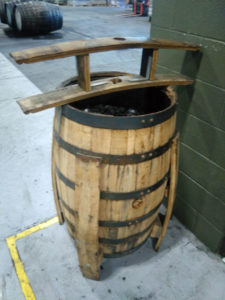
(Credit: Richard Thomas)
As a Kentuckian, I used to hold to the idea that the two whiskeys were entirely separate. Ironically, it was the very law Brown-Forman sponsored in the Tennessee State House in 2013 that changed my mind. By using Federal regulations defining Bourbon as a model, their efforts prompted me look at the matter differently. For some people it’s business and others emotion. But emotion or business, it doesn’t matter, because as Daniel Patrick Moynihan once said, “Everyone is entitled to their own opinion, but not their own facts.” And I used to work down the hall from Moynihan, so his axiom matters to me.
Yet knowing what D.O.C.s have done for all manner of foods and drinks in Europe, I think it’s a good thing to say Tennessee Whiskey is Bourbon, but the most important and distinctive sub-category within it. It enhances both types of whiskey, and gives nerds one more piece of information to dig into. Saying “Tennessee Whiskey is Bourbon” need not be contemptuous, but instead can be a declaration that it’s rather special.

